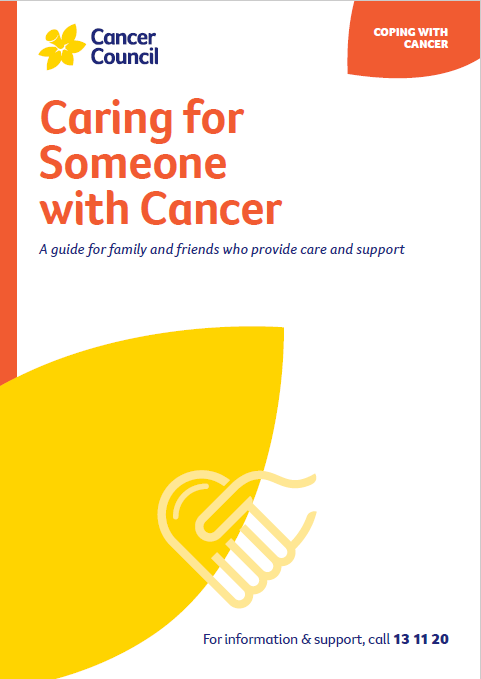- Home
- About Cancer
- Supporting someone with cancer
- Caring for someone with cancer
- Caring for yourself
- Working while caring
Working while caring
Many carers also work. Your caring duties and your job may both be important and necessary parts of your life. But it may be difficult to balance the demands of caring, family and work.
Caring can impact your job in various ways. It may affect your work hours, what you can achieve at work, how much time off you need, your concentration, and your emotional and physical wellbeing.
Balancing work and care commitments
Your decision to continue working will probably depend on several things, including:
- how unwell the person with cancer is
- what your caring and work duties involve
- your family situation
- the amount of help available from family and friends or respite care
- your finances and whether you need to earn an income
- your leave entitlements
- whether the need for care is likely to be temporary or long term
- what will give you peace of mind.
Before changing your working arrangements, talk with your employer, an Employee Assistance Program (EAP) counsellor, family or friends. You may be able to rearrange your working hours, take carer’s leave or make other flexible working arrangements. You can ask the health care team for a letter of support for your workplace. To find out more about working while caring, visit Carer Gateway.
Depending on where you live, Cancer Council may be able to connect you with a human resources (HR) professional or employment lawyer to provide information and advice about how to manage your work and caring responsibilities. Call Cancer Council 13 11 20 to find out more.
Learn more about cancer, work and you and cancer care and your rights.
Podcast: Cancer Affects the Carer Too
Listen to more episodes from our podcast for people affected by cancer
More resources
Dr Alison White, Palliative Medicine Specialist, Royal Perth Hospital, WA; Tracey Bilson, Consumer; Louise Dillon, Consumer; Louise Durham, Nurse Practitioner, Palliative Care Outpatients, Princess Alexandra Hospital, QLD; Katrina Elias, Carers Program, South Western Sydney Local Health District, NSW Health, NSW; Jessica Elliott, Social Worker, Youth Cancer Services, Crown Princess Mary Cancer Centre, Westmead Hospital, NSW; Brendan Myhill, Social Worker and Bereavement Research Officer, Concord Repatriation General Hospital, NSW; Penny Neller, Project Coordinator, National Palliative Care Projects, Australian Centre for Health Law Research, Queensland University of Technology, QLD; Olivia Palac, Acting Assistant Director, Occupational Therapy, Gold Coast University Hospital, QLD; Nicole Rampton, Advanced Occupational Therapist, Cancer Services, Gold Coast University Hospital, QLD; Shirley Roberts, Nurse Consultant, Medical Oncology, Northern Adelaide Cancer Centre, SA; Dr Elysia Thornton-Benko, Specialist General Practitioner, and UNSW Research Fellow, NSW; Kathleen Wilkins, Consumer; Helen Zahra, Carers Program, South Western Sydney Local Health District, NSW Health, NSW.
View the Cancer Council NSW editorial policy.
View all publications or call 13 11 20 for free printed copies.

